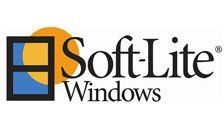Frequently Asked Questions

As you begin the window-buying process, you may have no idea where to start. Fortunately, Tomson Windows has the resources you need. Start by browsing some of our frequently asked questions below.
What Are Some Signs That My Windows Need to Be Replaced?
- You see an increase in your energy bills
- You have wooden window frames that constantly require maintenance
- You have windows that don’t slide up and down anymore
- Your windows have broken or cracked glass
- You see condensation between the panes of glass
- Air leaking into your home in and around your window
- Visible signs of aging or poor installation
What Are the Benefits of Replacing My Windows?
If you decide to invest in new windows, you’ll benefit in several ways:
- Lower energy bills
- Improved ease of use
- Effortless cleaning
- Little or no maintenance (depending on the frame material)
- Enhanced curb appeal
- Increased resale value
When is the Best Time to Install Windows?
Replacement windows can be installed year-round, outside of extreme weather such as precipitation or very high winds. Effective, energy-efficient windows can help you save on energy costs year-round, so it does not matter what time of year you replace your windows.
Do Replacement Windows Really End Up Paying for Themselves?
Installing high-quality, energy-efficient windows will offer you savings on your monthly energy bills by significantly lowering your home’s energy consumption. These energy savings over time will allow you to recoup your window investment, while also offering an increased value to your home.
What Causes Condensation?
When it comes to condensation, there are 2 types - interior and exterior. Exterior condensation often occurs during warmer months while interior condensation occurs in the colder months. Interior condensation is most often caused by extreme cold outside and excess moisture present inside the home. There are measures that can be taken to reduce interior condensation.
What is U-Value?
This measures the rate of heat loss and how well a product insulates. The lower the number, the better a product is at keeping heat inside a building. The U factor is key in the winter months, and important to consider when choosing a window.
What Does Low-E Mean?
Low-E, meaning "low emissivity," is a thin layer of metallic coating applied to the glass that, in simple terms, allows the glass to act like a sieve. It allows the surface of the glass to reflect or absorb the sun’s warmth and reduce damaging UV rays.
What is Solar Heat Gain?
This measures how well a product blocks heat from the sun. The lower the number the better.
What is Energy Star?
Energy Star is a joint program of the U.S. Environmental Protection Agency and the U.S. Dept. of Energy helping us all save money and protect the environment through energy-efficient products and practices.
Contact Us for Quality & Affordable New Windows
If you have any additional questions or concerns, please feel free to contact a member of our team to schedule a consultation. Whether you’re starting new construction or looking to upgrade your home, we have the perfect windows for your space. We carry a wide range of options including bay, sliding, double-hung windows, and so much more. We’re proud to provide top-notch window installation services to residents across Buffalo, Tonawanda, Amherst, Grand Island, Kenmore, Clarence, West Seneca, NY and the surrounding regions. No matter the type or size of your project, trust our company for all your new window needs!
Tomson Window
4829 Tomson Ave | Niagara Falls, NY 14304
(716) 236-8487
Buffalo, NY |
Tonawanda, NY |
Amherst, NY |
Grand Island, NY |
Kenmore, NY |
Clarence, NY |
West Seneca, NY




